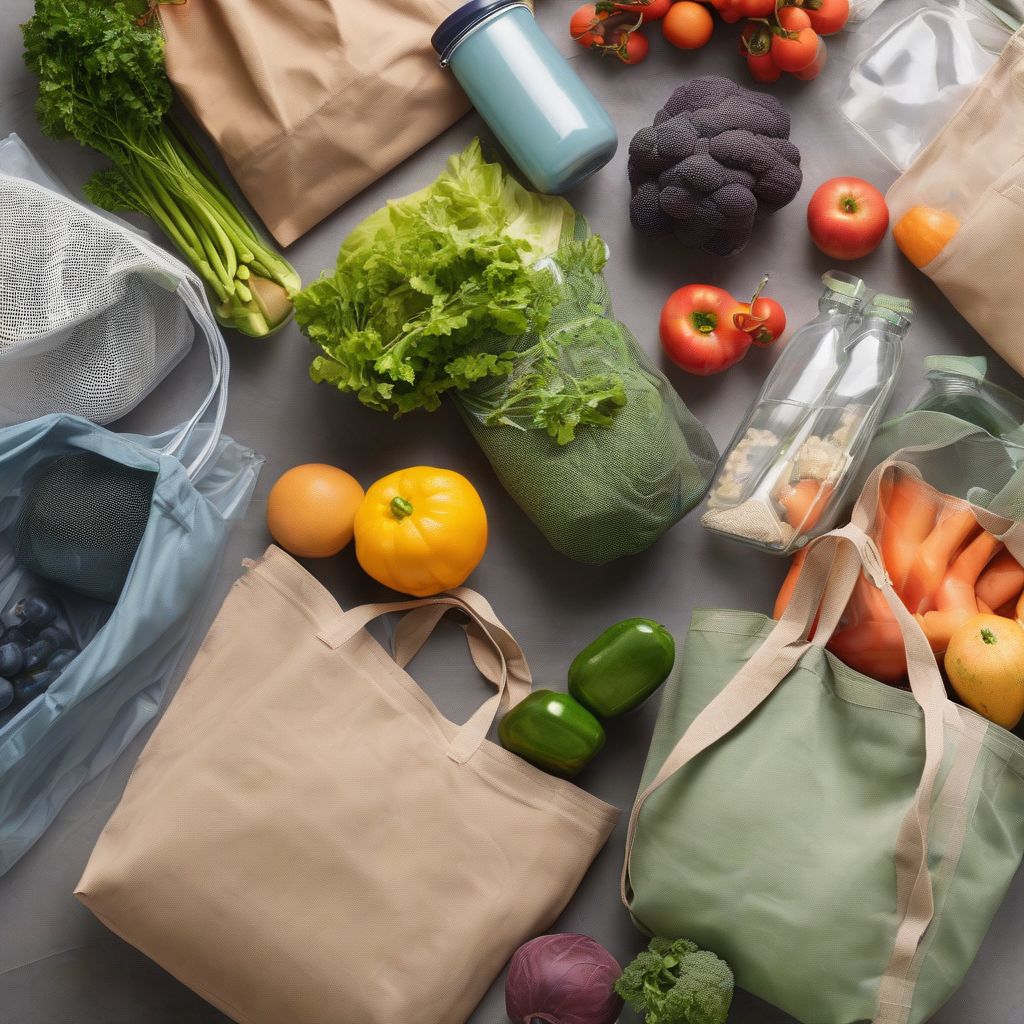Imagine this: you’re strolling through a bustling farmer’s market, sunlight dappling the colorful displays of fresh produce. Instead of grabbing those pre-packaged veggies, you pull out a reusable bag, carefully choosing only what you need. That’s the essence of zero-waste grocery shopping – a mindful approach that minimizes your environmental impact without compromising on quality or nutrition.
As a nutritionist and meal prep coach, I’m passionate about helping people make healthy, sustainable choices. And let me tell you, embracing a zero-waste grocery shopping routine can be incredibly empowering! It’s about making conscious decisions that align with both your health and the planet’s well-being.
Understanding Zero-Waste Grocery Shopping
Zero-waste grocery shopping goes beyond simply remembering your reusable bags. It’s about minimizing packaging waste, supporting local and sustainable businesses, and making the most of the food you buy. Think of it as a journey towards a more mindful and eco-friendly lifestyle.
Essential Steps for Zero-Waste Grocery Shopping
Ready to embark on your zero-waste grocery shopping adventure? Here’s a step-by-step guide to help you get started:
1. Audit Your Kitchen and Pantry
Before you even think about hitting the store, take stock of what you already have. This is crucial for preventing food waste and avoiding unnecessary purchases. Check your refrigerator, freezer, and pantry for items nearing their expiration dates and plan your meals around them.
2. Plan Your Meals and Make a List
Meal planning is your secret weapon against impulse buys and food waste. By planning your meals in advance, you can create a shopping list that’s precise and efficient. This will prevent you from buying items you don’t need, ultimately reducing waste.
3. Embrace Reusable Bags and Containers
Ditch the single-use plastic and arm yourself with a set of sturdy reusable bags for carrying your groceries. Consider investing in reusable produce bags made from mesh or cloth to avoid those flimsy plastic produce bags offered at the store.
 Reusable Bags for Groceries
Reusable Bags for Groceries
4. Explore Bulk Bins and Local Markets
Bulk bins are a zero-waste warrior’s best friend! They allow you to buy only the amount you need, minimizing packaging waste. Bring your own reusable containers or jars and fill them up with grains, legumes, nuts, seeds, spices, and even cleaning products.
5. Get Familiar with Packaging Symbols
Not all packaging is created equal. Some materials are recyclable, while others end up in landfills. Learn to identify packaging symbols like the recycling logo, compostable labels, and the chasing arrows. This knowledge empowers you to make informed choices about the products you bring into your home.
Overcoming Challenges and Staying Motivated
Switching to a zero-waste grocery shopping routine can seem daunting, but don’t worry! It’s a journey, and every little step counts. Here are a few tips to help you overcome common challenges and stay motivated:
- Start small and gradually incorporate new habits: Don’t feel pressured to go zero-waste overnight.
- Find a supportive community: Connect with like-minded individuals or online groups for inspiration and encouragement.
- Celebrate your successes: Acknowledge and appreciate the positive impact you’re making on the environment.
Conclusion
Zero-waste grocery shopping is an empowering way to align your eating habits with your values. By embracing these practices, you can significantly reduce your environmental footprint while enjoying fresh, wholesome food. Remember, every small step you take toward a zero-waste lifestyle makes a difference! Now, I’d love to hear from you. What are your biggest challenges in adopting a zero-waste lifestyle? Share your thoughts and questions in the comments below!
[amazon bestseller=”zero waste kitchen”]
